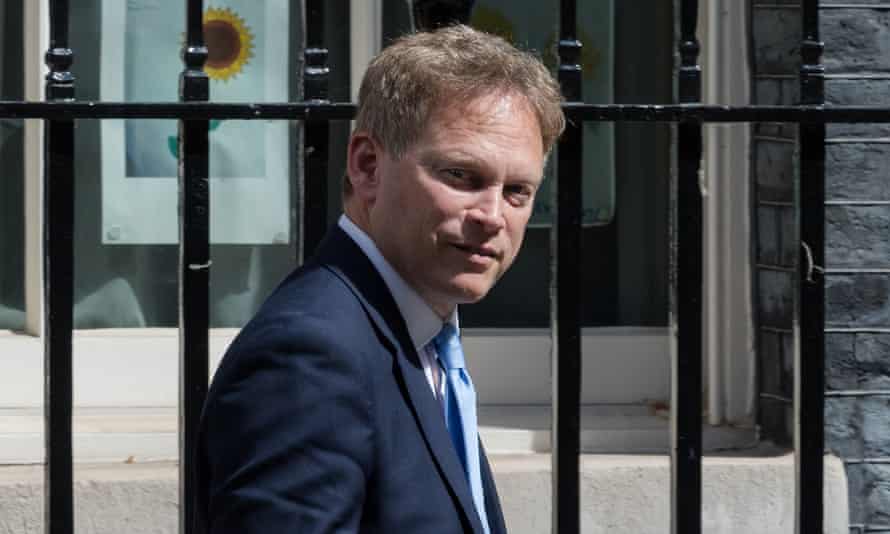The aviation minister was warned firstly of the yr that the widespread flight chaos witnessed final week was “inevitable” and authorities intervention was urgently required to forestall such disruption, union sources say.
Throughout a phone name with aviation unions in late January, Robert Courts was informed that the business wouldn’t have the ability to address excessive demand except it obtained assist to offset continual workers shortages.
These predictions have been performed out in typically farcical scenes final week, with hundreds of flights cancelled throughout one of many busiest weeks of the yr alongside day-long delays and large queues snaking out of terminal buildings.
Sources with information of the decision with Courts say that regardless of considerations being raised a few severe lack of workers after airways, airports and floor handlers sacked tens of 1000’s of workers in 2020 due to the Covid pandemic, the federal government didn’t provide an answer.
“The minister was instantly warned this was inevitable. They’ve to just accept some accountability,” stated a union supply, talking on situation of anonymity.
In flip, transport secretary Grant Shapps final week directly blamed some of the worst affected airlines, warning that the pressure on the business didn’t “excuse poor planning and overbooking flights that they can’t service”.
A authorities spokesperson added on Saturday that the business had a accountability to make sure that they had sufficient workers and stated it wanted to “step up recruitment”.
With the half-term vacation and jubilee weekend coming to an finish, there have been indicators yesterday that the worst of the disruption was beginning to ease.
At Stansted airport in Essex – a hub for easyJet and TUI Airways, which collectively cancelled dozens of flights final week, some at quick discover – workers stated the scenario was getting again to regular. Passengers touchdown there on Saturday morning, nonetheless, nonetheless described shock on the sheer quantity of individuals eager to fly.
Sisters Margeret Mularkey and Karmel Corbett stated that they had by no means seen Dublin airport so chaotic earlier than boarding their Ryanair flight to England. “It was completely loopy. Hundreds of individuals all over the place. They have been queuing up exterior, nicely into the automotive park,” stated Mularkey.
Corbett believed each the airways and the federal government appeared to have been blindsided by how abruptly the demand for flying had bounced again after lockdowns ended.
“They’ve obtained such an apparent scarcity of workers and clearly weren’t anticipating it to return to earlier ranges. They will need to have thought that Covid would deter most individuals from travelling once more,” she stated.

Mularkey additionally believed that the comparatively low pay and conditions of staff had performed a job. “Minimal wage is a giant difficulty in Eire,” she stated. “No surprise folks left the aviation business and by no means got here again.”
Behind them was Brian O’Farrell who stated that navigating safety at Dublin airport took thrice longer than normal.
“It was extraordinarily busy, “ he stated. “It actually was very crowded. I’m glad that I made a decision to solely deliver a carry-on bag but it surely nonetheless took me an hour to get by way of safety as a substitute of the same old 20 minutes.”
Close by at a stall bedecked in yellow and blue to welcome the 100 or so Ukrainian refugees who arrive at Stansted day by day, Andy Mitson admitted he was relieved that that they had managed to keep away from being caught up within the chaos. Mitson, who volunteers for CVSU, a group charity based mostly within the Essex district of Uttlesford, stated: “Disruption doesn’t seem to have been a giant downside for the Ukrainians, however to be truthful they’ve larger points to consider.”
In the meantime, hostilities between the federal government and aviation business are more likely to deepen this week with airways persevering with to foyer the federal government to calm down post-Brexit immigration guidelines and give EU aviation workers special visas to ease the disruption. But the federal government seems unlikely to vary its stance, leaving airways wanting workers because the summer time vacation season approaches.
The aviation business says it’s struggling to rehire workers rapidly sufficient to manage, largely as a result of potential workers must go safety background checks earlier than starting work.
British Airways, for example, misplaced about 10,000 workers through the pandemic and has rehired greater than 2,000 since, with 1000’s of others stated to be ready for safety clearance.
Unions argue that the extent of the job losses highlights the dearth of presidency assist through the pandemic, a problem that was then compounded by airways chopping too drastically in quest of financial savings.
A authorities spokesperson added: “Utilizing our post-Brexit freedoms, now we have modified the regulation to supply the sector with extra flexibility when coaching new workers, which can assist it to fill vacancies extra rapidly.”
The journey issues might this week prolong to the railways as passengers have been warned they’re additionally more likely to face disruption after a strike by conductors at a prepare firm. Members of the Rail, Maritime and Transport union (RMT) at TransPennine Express walked out on Saturday and have been resulting from strike once more on Sunday in a protracted dispute over pay.
TransPennine Categorical (TPE) urged folks to not journey, saying a restricted service accessible for these making important journeys.
Journey chaos can also be in retailer for Londoners, vacationers and staff, with 4,000 tube workers resulting from go on strike after the Queen’s platinum jubilee weekend celebrations finish.
Warnings of significant disruption are forecast for Monday with many underground stations, notably these within the centre of London, set to be absolutely closed.





